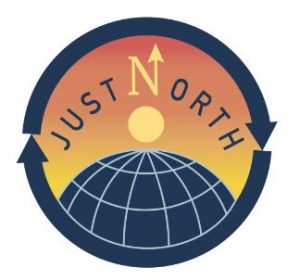Arctic communities must negotiate locally, regionally and with external actors on how to make the best use of the human and natural resources in the region. This is against the backdrop of increased globalization, climate change, high demand for the region’s mineral resources, and increasing local demand for improved living conditions and sustainable livelihoods.
Larsen, and Ingimundarson.
Arctic communities must negotiate locally, regionally and with external actors on how to make the best use of the human and natural resources in the region. This is against the backdrop of increased globalization, climate change, high demand for the region’s mineral resources, and increasing local demand for improved living conditions and sustainable livelihoods.
The regional and local contexts for achieving improved living conditions and more sustainable economic development vary across the Arctic. While Arctic economies have many characteristics in common – basic structural pillars and gaps in financial, human, physical and natural capital that frequently interfere with progress in economic development – the nature of their differences is what sets them apart. Their level of internal resilience differs widely, and therefore so does their ability to respond (Larsen and Huskey, 2015). Heterogeneity means that while local economies are subject to similar economic signals and disturbances from external environments, they respond differentially to regional and global changes. Differences in capacity to respond are linked to their broad diversity in human, physical, social and natural capital (Larsen and Petrov, 2020). Some of these capitals are limiting factors and cause inequalities between different contexts.
This chapter explores some of the key issues and challenges of justice and injustice in the Arctic with a focus on the case of South Greenland.
Read the full article:
https://bristoluniversitypressdigital.com/display/book/9781529224832/ch011.xml?tab_body=fulltext
JUSTNORTH
JUSTNORTH is a project designed to explore the multitude of ethical systems that coexist in the Arctic, as a starting point to assess the viability of new economic activities in the region. For the millions of people who live both inside and outside the Arctic and are affected by these economic activities, decisions are made through utilitarian ethical principles: viability of an activity is based on profitability and technical feasibility, with little regard to questions of whether it is ethically right or wrong for the impacted human populations or the environment. Global climate change has launched intense speculation on Arctic resources. Increasing geopolitical tensions among some of the Arctic states increases the importance of respecting different value systems while finding common values to help strengthen the links between Arctic and non-Arctic entities. Significant practice and policy gaps in existing Arctic economic activities have led to development that is unsustainable.
Through understanding current practices of development in the Arctic through the lens of 18 case studies, JUSTNORTH aims to develop conceptual frameworks, indices and a negotiation tool, for reconciling multiple ethics and value systems. These will provide a cornerstone for determining the viability of economic activities in the Arctic, as well as clarify policy, legal, and regulatory pathways for implementing ethic-based decision-making principles.
Global climate change has launched intense speculation on Arctic resources. Increasing geopolitical tensions among some of the Arctic states increases the importance of respecting different value systems while finding common values to help strengthen the links between Arctic and non-Arctic entities. Significant practice and policy gaps in existing Arctic economic activities have led to development that is unsustainable.
Through understanding current practices of development in the Arctic through the lens of 18 case studies, JUSTNORTH aims to develop conceptual frameworks, indices and a negotiation tool, for reconciling multiple ethics and value systems. These will provide a cornerstone for determining the viability of economic activities in the Arctic, as well as clarify policy, legal, and regulatory pathways for implementing ethic-based decision-making principles.
Project details
- Project title: “Toward Just, Ethical and Sustainable Arctic Economies, Environments and Societies”
- Funding scheme: European Union Horizon 2020 Programme (EU H2020, Grant agreement ID: 869327)
- Duration: 3 years (1 June 2020 – 30 November 2023)
- Project coordinator: Uppsala Universitet, Dr. Corine Wood-Donnelly
- Project website: www.justnorth.eu/
